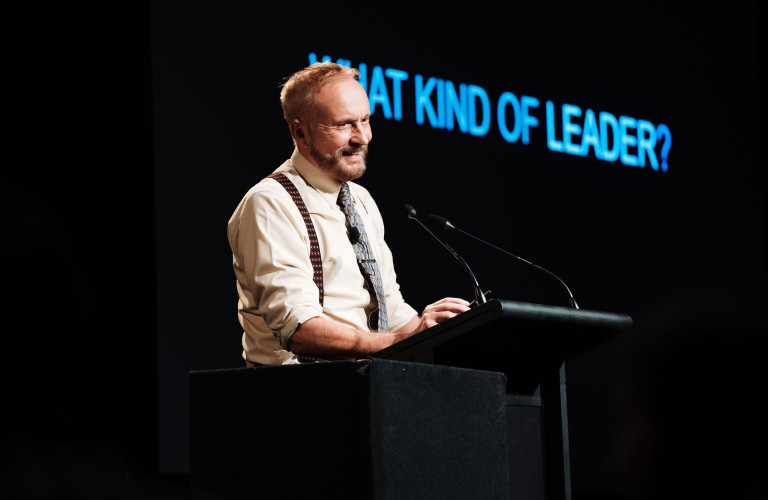Keeping well digitally
Parents and teachers need to be role models for children and young people’s digital wellness

How can we help young people with this technology that is so amazing in so many ways but also distracting? That was a question posed by Professor Pasi Salhberg to participants at the PPTA Te Wehengarua Education Conference in April.
“We need to show young people how to manage the disrtraction and exercise self-control. Rather than a blanket ban on devices, we need to understand the nature of this challenge and help parents and schools to help young people deal with this challenge.”
Professor Sahlberg, currently Professor of Educational Leadership at the University of Melbourne, said a comprehensive research project in Australia found that almost 70 percent of teachers believed that opportunities to facilitate inquiry-based learning were enhanced by digital technology. At the same time, 78 percent of teachers say that over the last three to five years students’ ability to focus on educational tasks has decreased, 78 percent have noticed a decrease in student empathy and 60 percent have noted declining levels of physical activity.
The study also found that Australian classrooms are becoming increasingly complex places to teach and learn. Over the last three to five years, the proportion of students with emotional challenges had increased by 94 percent, students with social challenges had risen 93 percent, behavioural problems had increased by 93 percent and the number of students with cognitive challenges had increased by 84 percent.
Banning devices was not the answer. “Sweden and France, for example, were some of the first places to ban phones yet it resulted in very little difference in learning results.”
The real digital divide is not between children who have access to the internet and those who don’t. It’s between children whose parents know that they have to restrict screen time and those whose parents have been sold a bill of goods by schools and politicians that more screens are a key to success. The new digital divide leaves many children on their own with digital devices.
Professor Sahlberg’s advice to teachers was to avoid simple solutions to this complex challenge. “Talk about the benefits and risks of digital lifestyles, set digital wellness as a common goal, be a role model for good life. Place limits, not bans.”
Teachers, parents and caregivers needed to set the set same rules for themselves around devices as their students.
“Use the best evidence available, find healthy digital habits and set simple first steps.”
He acknowledged dealing with the challenges of device use was not easy. “But you have to do something because this thing is only going to get worse before it gets better.”
Continuing the theme of digital technology challenges, another speaker, Professor Welby Ings, told conference participants the internet was the world’s most amazing library surrounded by the world’s most toxic rubbish heap. “Technology is not the problem, it’s the human beings using it.”
Critical discernment was crucial in a world of misinformation and disinformation. “Rabbit holes are a trip to hell, they are places where people don’t make decisions that keep themselves and others safe, they create anxiety around things that don’t matter.
“How do we as teachers equip people to survive with the sophisticated levels of persuasion swirling around them? The gift that we give through education is the freedom to think.
“Teaching is a human activity where you need to spend time with individuals to see how they think. Many individuals’ thinking and intelligence are not enhanced by assessment systems. Some people have the most beautiful intellects but they operate in dimensions that are not measured by assessment systems.”
Professor Ings said he could not write or read until he was 15. “I was terrorised by testing. Our job as teachers is to make a world where people who learn differently and at a different rate, flourish.”
Other speakers at the conference included the Minister of Education Hon. Jan Tinetti, Dr Rose Hipkins, chief researcher at the NZ Council for Educational Research, psychologist and consultant Dr Paul Wood, and journalist and author Jehan Casinader.
Presentations from the conference are available at https://confer.eventsair.com/pptaeducation2023
Last modified on Tuesday, 25 July 2023 10:23
